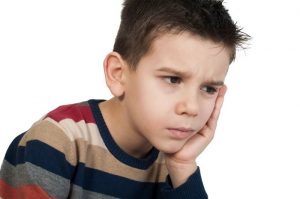What is the Psychological Impact of Divorce on Kids?
Divorce causes emotional turmoil for the whole family – yet for children, the circumstances may be very frustrating, confusing, and scary:
 Young kids oftentimes have problems understanding why they have to go between two houses. They might be concerned that if their parents are able to stop loving each other that someday, their parents might stop loving them.
Young kids oftentimes have problems understanding why they have to go between two houses. They might be concerned that if their parents are able to stop loving each other that someday, their parents might stop loving them.- Children in grade school might be concerned that the divorce is their fault. He or she might fear they’ve misbehaved or might assume they did something wrong.
- Teens might become fairly angry about divorce and the changes it causes. They might blame one parent for the end of the relationship, or they might resent one or both parents for the family’s upheaval.
Stressful Events Related to Divorce
Usually, divorce means that the children lose daily contact with one parent—most commonly their father. Financial hardships are common after divorce. Some families may need to change neighborhoods and/or move to smaller homes. Most families will experience a lower standard of living.
Divorce May Increase the Risk of Mental Health Concerns
All family members will go through a period of adjustment. This is normal. However, if someone is not adjusting well after a couple of months, or seems to be getting worse, professional help should be sought out. The parent should watch for changes in the behavior of their children. Are there regressive behaviors? For instance, a child who is potty trained starts wetting their pants or the bed at night. Trouble sleeping, sleeping too much, not eating, or eating too much. Not wanting to play with their friends, or wanting to quit an activity they previously enjoyed. Acting out at school. A significant change in grades, either better or worse than before. These are signs that a child is struggling. Some short term professional help may be what is needed.
When Should You Seek Help for Your Son or Daughter?
Individual therapy might assist your child in sorting out their emotions. Family therapy might also be helpful to address family dynamic changes. Also, some communities provide children’s support groups. Support groups permit children in specific age groups to meet with other kids who might be experiencing likewise family structure changes.
Mediation / Collaborative divorce help deal with these issues before the divorce is final to try to alleviate some of the long-term effects. Effective co-parenting and communication skills can go a long way toward keeping the family unit functioning well which, in turn, helps children deal with the divorce in a much healthier manner.
For more information on how collaborative divorce works, contact Collaborative Practice San Diego today!
collaborativepracticesandiego.com
